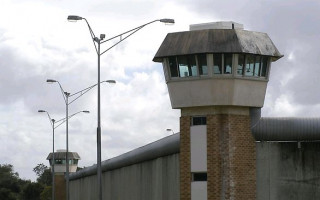Problems at Hakea Prison foreseeable and avoidable
Thursday 09 Jun 2016
The WA Prison Officers’ Union said a damning report on Hakea prison by the Office of the Inspector of Custodial Services has highlighted a number of foreseeable and preventable issues.
The report into WA’s remand prison has found that prisoners, most of whom had not been convicted of a crime, were being denied fundamental rights and were suffering some of the worst conditions in WA.
WAPOU Secretary John Welch said many of the issues at the prison could be attributed to chronic overcrowding and a lack of staff.
“We have been warning for a long time now that the shocking overcrowding at Hakea would lead to issues in the prison, so this report certainly comes as no surprise to us,” he said.
“You simply cannot continue to cram more and more prisoners into a prison which is not designed to hold them and then expect everything to run smoothly.
“Hakea is consistently well beyond its design capacity, and this is causing ongoing issues for both prisoners and staff.
“When you then add the issue of continual staff shortages on top of this, we believe Hakea is at risk of a major incident occurring.”
Mr Welch said the union was particularly concerned about the report’s criticism of the Department of Corrective Service’s management of transmission of blood borne diseases.
“We have repeatedly raised concerns over staff safety at Hakea, and we understand that the Department has been issued with health and safety notices by Worksafe which require it to improve its practices,” he said.
The union backed calls by the Acting Inspector for a new metropolitan remand prison for men.
“The Corrective Services Commissioner said a year ago that WA needed a new prison within 3 years, and we were very disappointed to discover that one had not been funded in the last State Budget,” he said.
“Even if the government were to allocate the money now for a new prison, it would be up to 5 years before it could be up and running.
“Given the prison population has grown by 66 per cent in the past nine years and is expected to keep increasing, we have no idea where the government plans to put all the extra prisoners in the meantime.
“And if it continues to cram more prisoners into the existing facilities, we are going to see more issues like the ones highlighted in this report.”
Mr Welch said the union was pleased that the report noted that staff were doing their best under ‘very trying conditions’.
“The report identifies there is a strained relationship between staff and management, and we have raised concerns about this with the Department,” he said.
